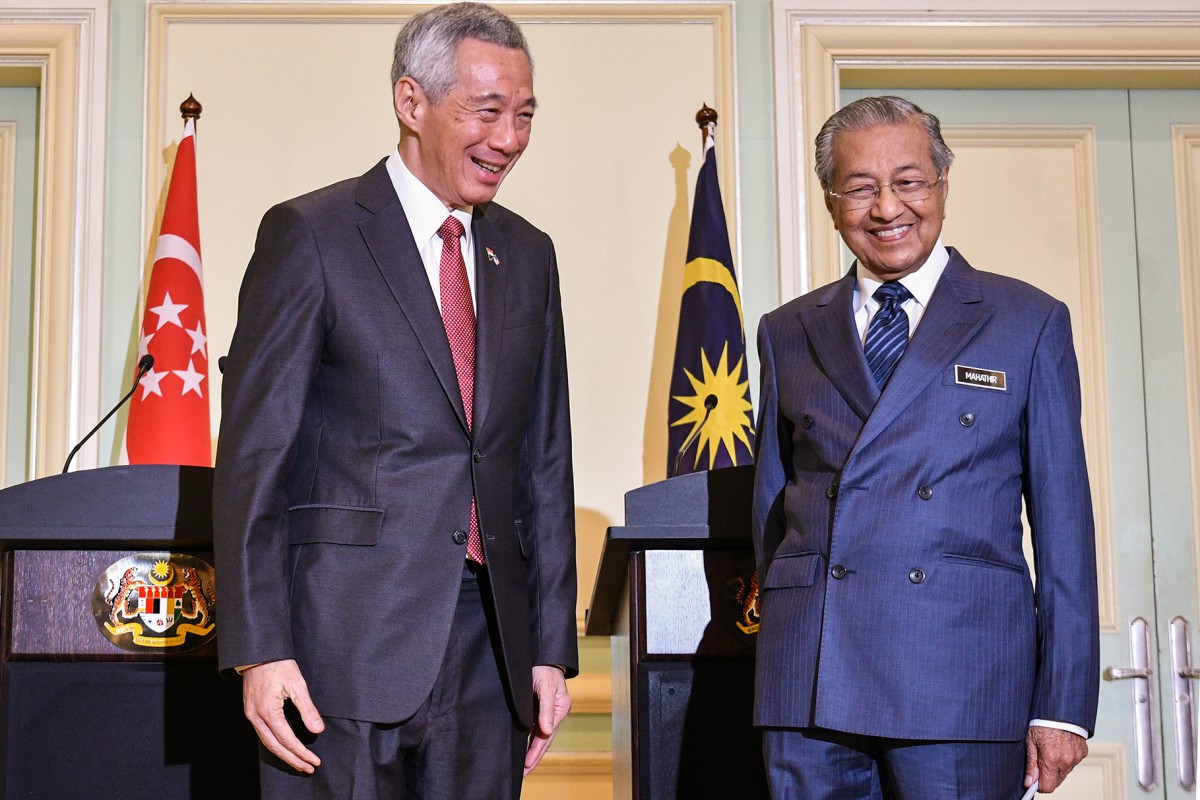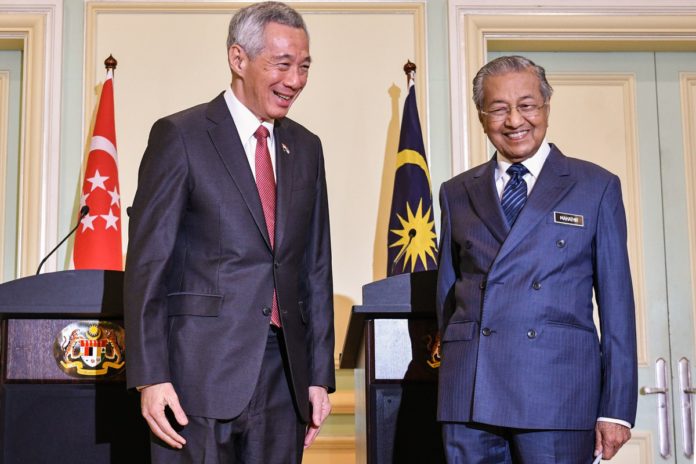Is Lee’s thinking and strategic vision still applicable in this new world?
On the fourth anniversary of his passing, the question looms large for Singapore. As a small state dependent on the outside world for economic growth, and on larger powers to keep the regional peace, it is particularly vulnerable to how the international order is changing.
There are four elements of his approach to foreign policy that continue to be relevant but will also come under great pressure in the years to come.
SEE ALSO: Autocracies masquerading as democracies are a threat across the globe
First is the idea that a small state like Singapore needs a credible armed forces to deter would-be aggressors. It was a priority when the country suddenly became independent in 1965 and found itself having to build an army from scratch.
Lee’s firsthand experience of Japanese occupation in 1941 as well as the 1965 forced separation from Malaysia had a profound impact on his thinking about security. Singapore has since been unrelenting in building up its armed forces, allocating 30 per cent of government expenditure this year on defence, security and diplomacy.
Developing this military capability has also meant closer ties with the United States from which Singapore buys most of its military equipment, including advanced fighter aircraft. Singapore’s close security ties with the United States are a key part of Lee’s strategic vision but will also come under pressure as the balance of power shifts to a rising China.
Whatever happens, Singapore’s commitment to its own defence that Lee first defined will not change. ‘Without a strong economy, there can be no defence’, Lee asserted, ‘[without] a strong defence, there will be no Singapore. It will become a satellite, cowed and intimidated by its neighbours’.
The second pillar of Lee’s foreign policy stems from his realist view of how a small state can best survive in a world dominated by more powerful actors. Creating space for Singapore has been an unending effort for Singaporean officials, resulting in the many linkages the country has internationally, and its support of multilateral organisations such as ASEAN, the ASEAN Regional Forum and the Comprehensive and Progressive Agreement on Trans-Pacific Partnership.

Malaysia’s Prime Minister Mahathir Mohamad (R) and his Singaporean counterpart Lee Hsien Loong smile during a joint press conference in Putrajaya on April 9, 2019. Source: STRINGER / AFP
Lee believed regional peace and stability was best achieved by having the major powers engaged in the region. Not just the United States but also China, Japan, Australia, India and European countries.
Despite the United States being the pre-eminent power in Asia throughout his years in office, he did not anchor Singapore solely in the US camp. Instead he worked hard to expand Singapore’s international space, for example working closely with Chinese leaders to expand economic and political ties.
SEE ALSO: How are Singapore’s armed forces innovating?
But China’s rise and its growing assertiveness in pursuing territorial claims in the South China Sea will test how ASEAN, including Singapore, manages the new reality. For Lee the answer lies in continued US engagement in the region. ‘If there is no counterbalance from the US, there will be no room to manoeuvre for smaller Asian countries. When you have two trees instead of one, you can choose which shade to be under’. If Lee were alive today, he would continue looking for more shade.
The third element of Lee’s strategic vision is how to realise Singapore’s strategic goals through developing close relationships with leaders that mattered to Singapore. The best example was Lee’s personal friendship with then Indonesian president Suharto.
They could not have had a worst start after Singapore executed two Indonesian saboteurs in 1968. But the two leaders worked at it, the friendship blossomed and they met regularly over two decades to resolve issues between the two countries.
China–Singapore and US–Singapore ties similarly benefitted from Lee’s personal relationship with many of their leaders who respected his deep insights and forthright views. When the world is more uncertain, it is even more important to be able to reach out to reliable friends.
Finally, Lee’s strategic vision of Singapore’s place in the world cannot be divorced from how he saw the country’s own identity: a vulnerable nation that had to be exceptional in Southeast Asia to survive. ‘I decided we had to differentiate ourselves from [others] or we are finished’, he reflected.
SEE ALSO: Populism, Asian style: 40 percent of the continent under populist governance
Exceptionalism has profound implications for Singapore’s foreign policy and will invariably create problems with neighbouring countries from time to time. When you are different you have to work harder at your relationships, and Singapore’s leaders will have to manage them deftly.
But the greatest challenge to Lee’s vision of Singapore’s exceptionalism will come internally. Can its people and government maintain the high standards, even as other countries progress to narrow the gap? If they do not, all the other elements of Singapore’s foreign policy fall apart. That is what it means to say that foreign policy begins at home.
Han Fook Kwang is Senior Fellow at the S. Rajaratnam School of International Studies (RSIS), Nanyang Technological University (NTU), Singapore. He was co-author of several books on Lee Kuan Yew including The Man and his Ideas and Hard Truths to Keep Singapore Going. As then Managing Editor of Singapore Press Holdings, he led the editorial team for One Man’s View of the World.
A version of this article originally appeared here on RSIS.
This article has been republished from East Asia Forum under a Creative Commons license.





